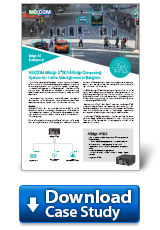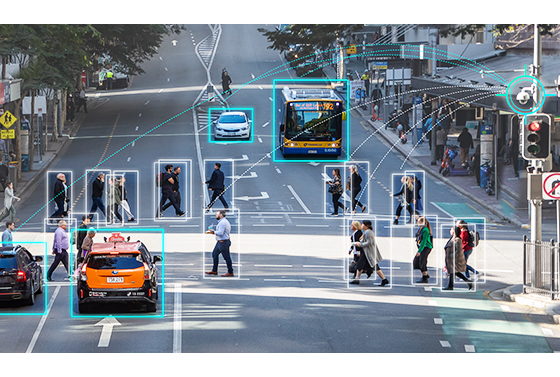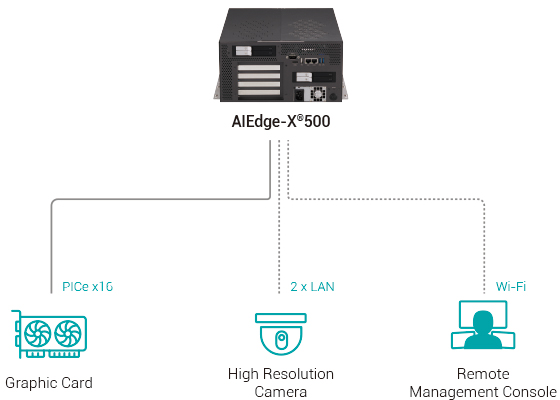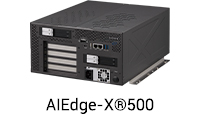NEXCOM AIEdge-X®500 Edge AI Computing System for Traffic Management in Bangkok

The bustling metropolis of Bangkok, Thailand, stands as a beacon of cultural richness and economic vitality. However, similar to other emerging cities in South East Asia, its growth has led to an unprecedented challenge – traffic congestion. There were traffic lights at about 500 locations in Bangkok. In many areas they were still controlled by timers and did not adjust to actual traffic conditions.
Thailand government launched “Thailand 4.0 project” to Integrate AI into current traffic management systems for cities to optimize road conditions and enhance urban transportation planning.

Solution
AIEdge-X®500’s LAN ports are connected to CCTV traffic cameras installed at intersections to record and perform license plate recognition to catch traffic violators who exceeds speed limit, cross red line and motorists who parked their vehicles in no-parking areas.
On top of it, City Administration and Office of Transport, Traffic Policy and Planning developed a traffic management model and use AI to estimate traffic congestion in each hour, analyze bottlenecks and come up with solutions in real time. For example, by adjusting traffic lights in line with traffic volume.
NEXCOM AIEdge-X®500 seamlessly integrates into the traffic signal box, showcasing its remarkable performance even in the challenging conditions of high temperatures and humidity that are characteristic of the subtropical climate. The device operates efficiently within a temperature spectrum of 0°C to 45°C and a humidity range of 10% to 90%.
Powered by Intel® 8th/9th Gen. Core™ processor, the AIEdge-X®500 integrates maximum graphic processing potential with support for large storage and peripheral and internal devices to effectively meet industrial AI requirements, from image processing/optimization to machine/deep learning and machine vision.
This AIEdge-X®500 Edge AI computing solutions are expected to be deployed to 100 other locations in next 2 to 3 years to facilitate traffic management in Bangkok and reduce traffic violations in the city.
Application Diagram

Key Features for Application Needs
- LGA1151 socket for 8th/9th Generation Intel® Core™ processor (35W/65W/95W*)
* If 95W CPU is desired, please select P/N: 10W20X50001X0 - 4 x 2.5 inch HDD/SSD slot, supports RAID 0/1/5/10
- Expandable PCIe x16/PCIe x4/PCI slots, perfect for graphics cards for easy connection
- Suitable for all kinds of AI applications
- 1 x Intel® I219-LM GbE PHY and 1 x Intel® I211 Gigabit Ethernet Controller
- Supports Intel® AMT
- Related Links:
- AIEdge-X®80 Leaps Ahead: Power Up TOPS Performance with NVIDIA® Jetson™ Super Mode
- Transforming Campus Administration and Services with School AI Management System
- Browse Other News:
- NEXCOM to Unveil "Embodied AI Robots - Safe by Design" at NVIDIA GTC 2026
- Surge Immunity by Design: EMC Strategies for IEC 61850/IEEE 1613 Network Gateways
- All Case Study News
